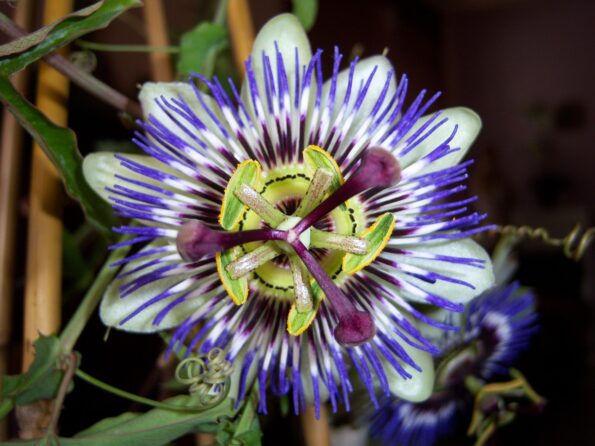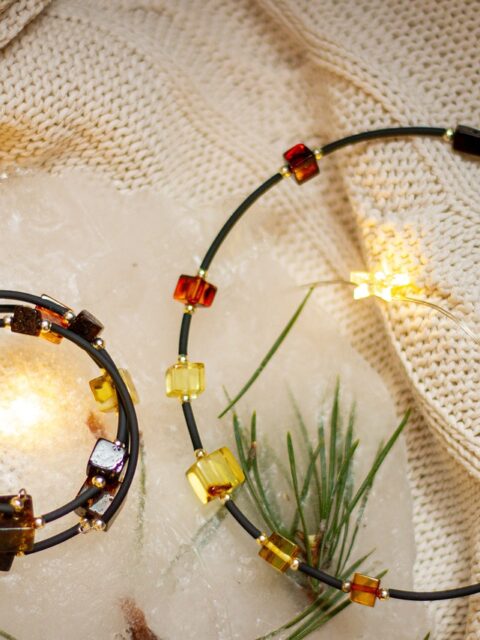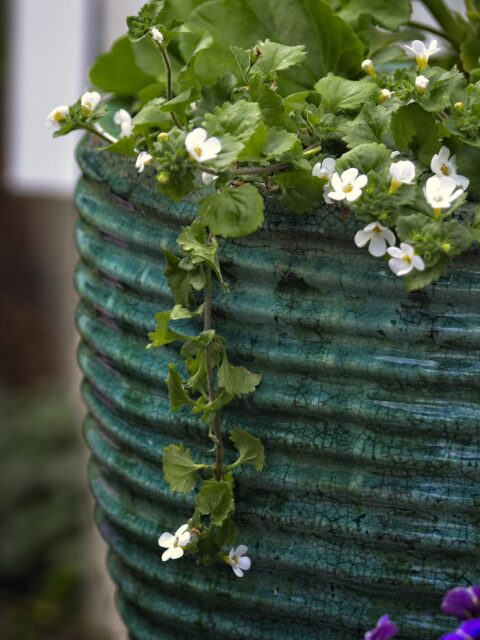
To missionaries in South America, the passionflower represented the Passion Christ: the three stigmas symbolized the nails, the corona represented the crown of thorns, the five stamens the wounds, and the ten petals the Apostles. And so, the name Passionflower was born. Today passionflower is used in conditions related to emotional imbalance and in cooking.
- The three stigmas — the nails of the crucifixion
- The corona — the crown of thorns
- The five stamens — the wounds
- The ten petals — the faithful Apostles
Beyond its rich symbolism, Passiflora incarnata has long been valued for its ability to bring peace — not only to the heart but also to the nervous system.
When I was going through a period of emotional exhaustion a few years ago, a herbalist friend recommended passionflower tea. I began brewing it every evening before bed, sometimes blending it with chamomile or lemon balm.
There are about 400 species of passionflower. Some are used only for decorative purpose, some in medicine and some in cooking. The passionflower passiflora incarnata is used in medicine for its calming effects on the mind and body. In cooking, passionflower seeds and pulp are used. They have a tangy flavor and are often eaten raw or used in fruit salads.
Traditionally, Passionflower (Passiflora incarnata) is used to treat anxiety, nervous restlessness, insomnia, neuralgia diarrhea, or to aid in hysteria treatments. Flavonoids (Chrysin, Isovitexin, Vitexin, Orientin) found in passionflower are believed to have a sedative effect on the nervous system.
Passionflower is often used to:
- Calm anxious thoughts and restlessness
- Ease tension headaches and muscle tightness
- Support natural, deeper sleep
- Reduce menstrual-related anxiety or irritability
Its main active compounds — flavonoids like chrysin, vitexin, and isovitexin, are believed to have a sedative effect on the nervous system, helping to regulate the nervous system, encouraging the body to unwind naturally without causing dependency.
Passionflower benefits
- Used as a sedative
- Relieves restlessness and nervous tension
- One of the best sleep aids
- Relieves muscle tension
- Treats anxiety during menses
In the Kitchen: Tangy and Tropical
Beyond teas and tinctures, passionflower also plays a role in the kitchen.
The seeds and pulp of certain species have a tangy, slightly floral flavor that brightens up fruit salads, smoothies, and desserts. In South America, it’s common to see passionfruit pulp mixed with yogurt or drizzled over pancakes — a refreshing way to start the morning.
If you ever try blending your own “calm and glow smoothie”, try this simple mix:
- 1 banana
- ½ cup passionfruit pulp
- A few mint leaves
- Coconut water or oat milk
- Ice cubes
It’s a little tropical sunshine in a glass, and surprisingly relaxing.
Traditional and Folk Beliefs
In folklore, the passionflower was often placed in homes to soothe conflicts and invite peace. Some people even tuck a dried blossom under their pillow to improve sleep and reduce nightmares.
Safety Notes
Passionflower is generally safe for most people, but a few things to remember:
Please note: possible drowsiness if used in excessive amounts. Also passionflower is not advised to be used during pregnancy (increases uterine contractions).
– It may cause drowsiness in large amounts.
– Avoid using it during pregnancy, as it may stimulate uterine contractions.
– If you’re taking medications for sleep, anxiety, or depression, always check with your healthcare provider before use.
My Favorite Ways to Enjoy Passionflower
If you’d like to experience its calming effects, here are some lovely and affordable Amazon finds:
🫖 Organic Passionflower Tea – Traditional Medicinals Organic Passionflower Tea
🌿 Alcohol-Free Passionflower Tincture – Passionflower Tincture
💤 Sleep Blend with Passionflower – Sleep & Relax Herbal Tea
🌺 Passionflower Seeds for Home Growing – Passiflora Incarnata Seeds Pack
(As an Amazon Associate, Herbs Natura may earn a small commission from qualifying purchases — at no extra cost to you. This helps support the site and future herbal guides like this one.)
As one herbalist once told me:
“When the mind is noisy, the passionflower whispers.”
Let it whisper to you, too.


